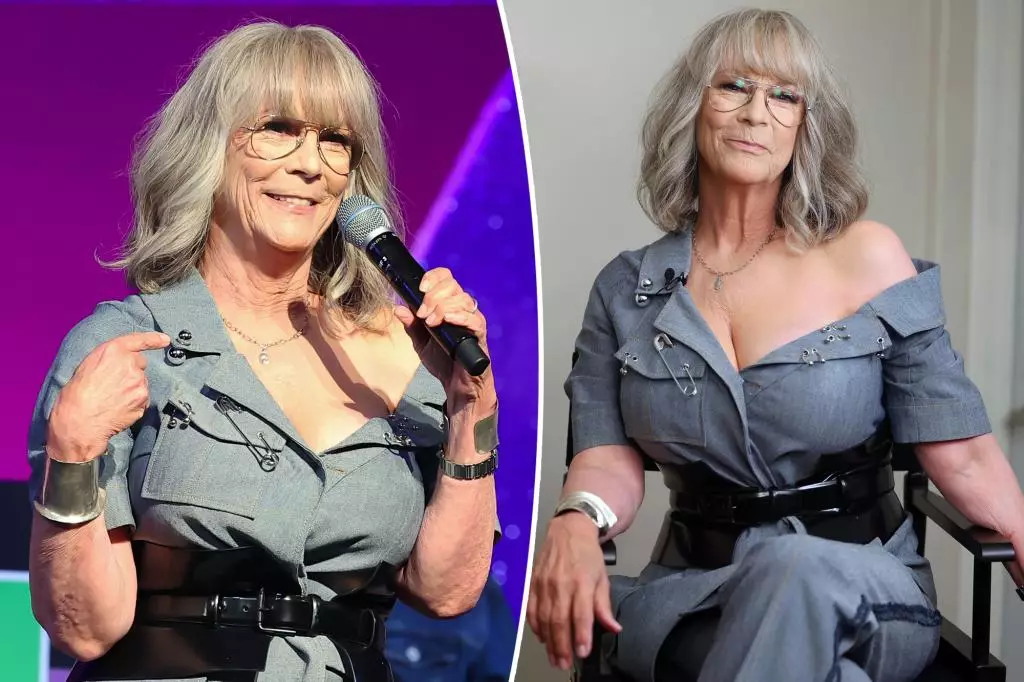In a culture obsessed with youth and perfection, Jamie Lee Curtis’s unapologetic attitude towards her appearance offers a refreshing counterpoint. Her recent playful social media post, showcasing a daring outfit that drew global attention, exemplifies a larger shift toward embracing natural aging. Rather than conforming to Hollywood’s often unattainable standards, Curtis proudly displays her curves and confidence, sending a powerful message: beauty is not confined to the young or the flawless. Her willingness to share unfiltered glimpses of herself in a casual yet striking ensemble signals a broader cultural movement—one that values authenticity over superficiality. Curtis’s stance encourages women of all ages to shed the shame associated with aging and to celebrate their bodies as they’re changing naturally, not as they are artificially altered.
Deconstructing the Myth of Perfection in Hollywood
Curtis’s outspoken critique of cosmetic surgery and societal beauty norms cuts through the veneer of Hollywood’s glossy façade. Her candid remarks about feeling “disfigured” by unnecessary cosmetic procedures highlight a deeper issue: the toxic cycle of self-doubt and societal pressure for women to look a certain way, regardless of their age. Her personal confession about regretting her own early plastic surgery at 25 underscores a universal truth—no amount of cosmetic intervention can truly guarantee happiness or self-acceptance. Curtis’s stance advocates for a paradigm shift: instead of obsessing over youth-preserving interventions, women should focus on cultivating inner confidence and embracing their evolving identities. Her actions and words challenge fans and peers alike to reconsider what it means to be truly beautiful.
Redefining Influence Through Realness
At 66, Curtis doesn’t shy away from celebrating her individuality, asserting that feeling “more beautiful” now than ever is part of her evolution. She leverages her influence to inspire others to question the societal obsession with eternal youth and to normalize aging gracefully. Her humorous responses to social media commentary—ranging from playful references to yogurt ads to revisiting her past work—embody her refusal to take herself too seriously. This authenticity resonates deeply in a world that often promotes curated perfection. Curtis’s openness about her imperfections and her rejection of societal pressures serve as a form of quiet rebellion that empowers women to embrace their unique journeys. Her confidence, rooted in self-awareness and humor, redefines influence: it’s not about conforming to superficial ideals but about promoting genuine self-love and resilience.
The Power of Authentic Representation
Curtis’s recent stance isn’t just a personal choice; it’s a catalyst for cultural change. By openly criticizing the cosmetic industry’s detrimental impact on generations of women and sharing her own experiences, she ignites critical conversations about societal beauty standards. Her willingness to confront uncomfortable truths—like the toll of the “cosmeceutical industrial complex”—spotlights the importance of authentic representation for aging women. Hollywood and media, long criticized for their narrow depiction of beauty, are slowly realizing the value of genuine stories that celebrate aging as a natural and beautiful phase of life. Curtis’s example proves that strength and allure aren’t confined by age or societal expectations but are cultivated through self-acceptance and honesty. Her influence challenges both fans and industry insiders to rethink beauty’s true essence and to prioritize authenticity over superficial praise.
Curtis’s journey demonstrates that confidence, when rooted in self-awareness, is the most powerful form of beauty. Her refusal to succumb to societal pressures and her choice to celebrate her authentic self pave the way for a more inclusive and empowering definition of what it means to age beautifully.

